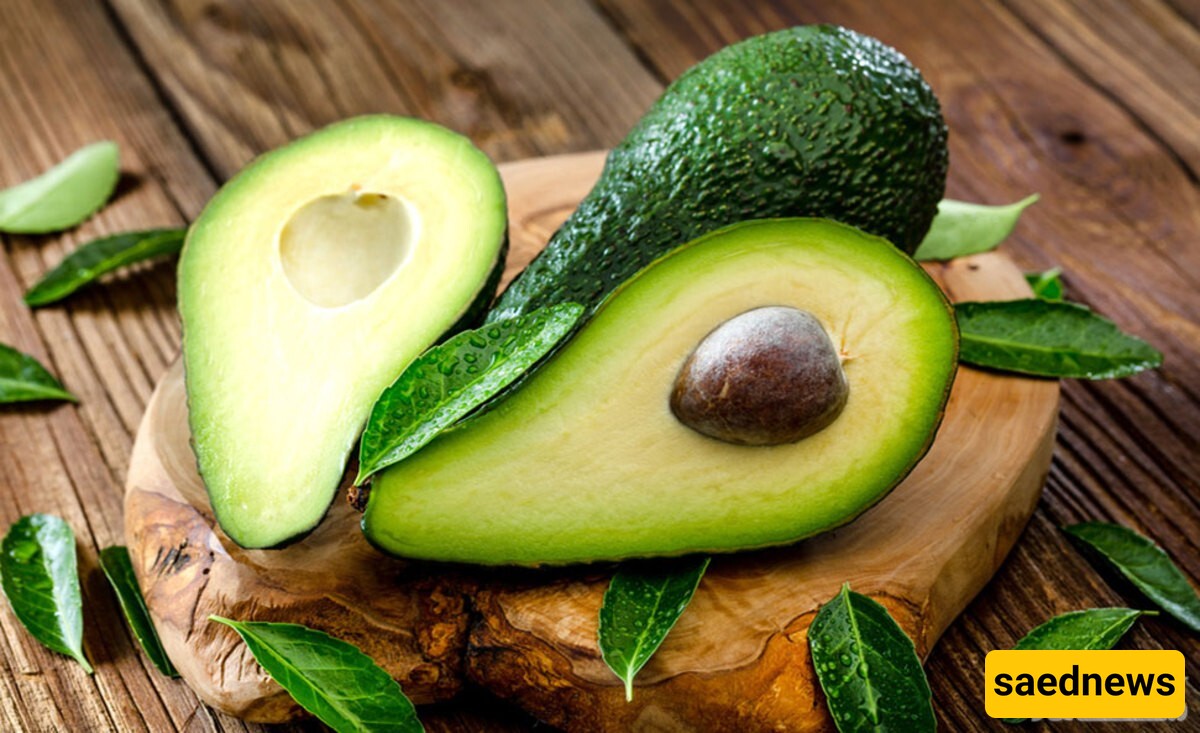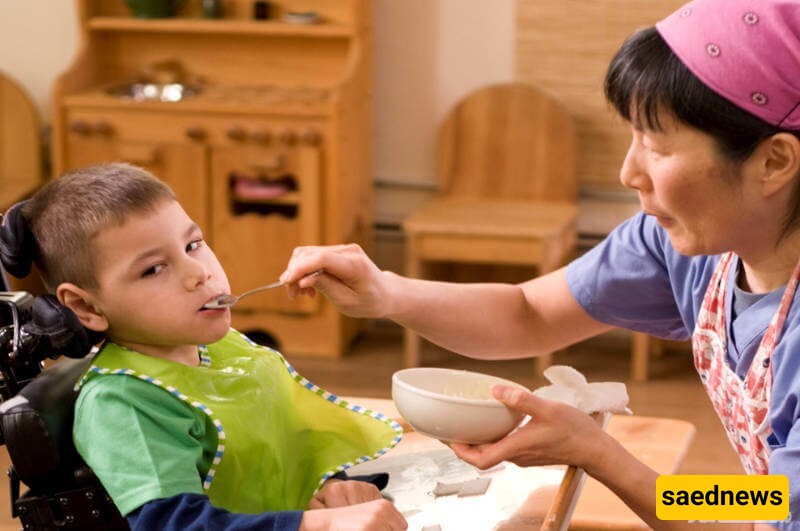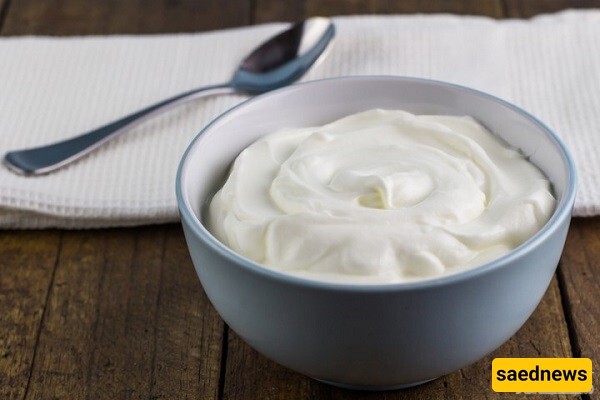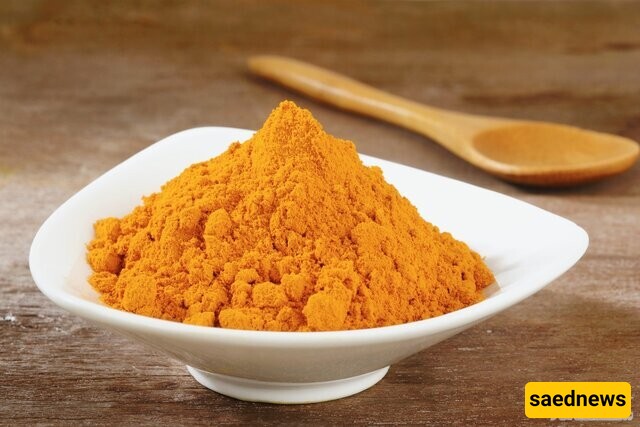Nutrition in children with CP is very important. In this article, we aim to discuss this crucial topic, which may be of concern to families during rehabilitation, and introduce various foods that can be beneficial for children with cerebral palsy.

Some children with cerebral palsy may have difficulties with chewing and swallowing, which can make feeding them challenging. Digestive issues such as acid reflux and constipation can cause discomfort while eating. As a result, ensuring adequate nutrition for children with cerebral palsy is difficult, potentially leading to poor growth or malnutrition.
Children with CP require proper nutrition and healthy foods like other children. However, depending on their level of activity and muscle tone, their caloric needs may vary. For instance, a child with strong muscles and high physical activity will need more energy and nutrition than a child with low muscle tone and reduced activity.
Children who are unable to walk due to feeding difficulties or have trouble getting enough nutrients from their diet may have weaker bones (low bone density), increasing their risk of fractures. To help keep their bones strong, children with CP need adequate amounts of the following nutrients:
Calcium: Supports the structure and function of bones and teeth. The best sources include milk, yogurt, cheese, and calcium-fortified water.
Vitamin D: Helps the body absorb calcium from food and supplements. It is found in fish like salmon and tuna, cod liver oil, and fortified products such as milk, orange juice, and cereals. The body also produces vitamin D when exposed to sunlight.
Phosphorus: Plays a role in forming bones and teeth. It is present in dairy products, meat, fish, eggs, poultry, nuts, seeds, and whole grains.
Other important vitamins and minerals for bone health: These include Vitamin C, Vitamin K, magnesium, copper, zinc, and manganese, which are found in beans, vegetables, and various foods. Most children get enough of these nutrients from their regular diet.
Sometimes, a child with CP cannot consume enough food by mouth to meet their nutritional needs. In such cases, doctors and dietitians may recommend supplements, which can include specific vitamins, minerals, calorie boosters, or protein enhancers. These supplements can be purchased in stores or prepared at home. Different formulas are available based on dietary needs, and homemade formulas should be created by a dietitian to ensure they meet nutritional goals.
If a child with cerebral palsy does not get enough nutrients from their diet or is experiencing deficiencies, they may need supplements like calcium and vitamin D. These supplements come in various forms, such as liquid or chewable tablets. A doctor or dietitian will recommend the best option for the child.
Children with swallowing difficulties may require thickening agents added to their food and drinks to help them swallow safely. A speech therapist can assess whether the child needs a thickener and determine the appropriate texture for their meals.
The best foods for children with CP are those that support brain function and help manage muscle weakness and secondary health issues. The root cause of muscle impairment in CP patients lies in the brain rather than the body. Many children with CP also experience conditions such as muscle contractions, osteoporosis, pain, learning difficulties, feeding problems, and digestive disorders.
Here are some of the best foods to include in a child’s diet to reduce or prevent these issues:
Eggs: A rich source of protein and choline, essential for muscle maintenance and brain function. Choline helps produce acetylcholine, a neurotransmitter that affects memory and learning.
Avocado: High in healthy fats and calories, avocados help children with CP who struggle to eat enough. They contain oleic acid (a type of Omega-9 fat) that supports cognitive function and brain health.

Nut Butters: Peanut butter, almond butter, and other nut butters provide healthy fats and high calories. They are easy to consume and can be mixed with oatmeal or smoothies to add protein, fiber, and essential vitamins.

Olive Oil: Increases levels of brain-derived neurotrophic factor (BDNF), which promotes brain cell growth and repair. It also boosts acetylcholine levels, improving learning and memory.
Dark Leafy Greens: Vegetables like spinach and kale are rich in Vitamin K, which supports brain function and bone strength. Research suggests that consuming these vegetables regularly slows cognitive decline. They also contain folate (Vitamin B), which is necessary for producing serotonin, epinephrine, norepinephrine, and dopamine—neurotransmitters that improve mood and reduce behavioral issues.
Whole Grains: Brown rice, barley, rye, whole wheat, and quinoa are nutrient-rich and high in fiber. Many children with CP spend long periods in wheelchairs, leading to slow digestion and reduced blood circulation, increasing the risk of constipation. Whole grains provide fiber that aids digestion and prevents constipation. They also contain probiotics, which support healthy gut bacteria.
Greek Yogurt: A high-calcium food that strengthens bones and supports nerve function. Since many children with CP have difficulty absorbing nutrients, they may have weak bones and muscles. Greek yogurt is also rich in protein, which aids muscle growth. Additionally, its probiotics help with digestion and gut health.

Ginger: Used for medicinal purposes for centuries, ginger aids digestion, improves circulation, strengthens the immune system, and supports brain function. Children with CP often experience muscle contractions and pain, and ginger’s anti-inflammatory properties can help reduce muscle and joint discomfort. It is also high in antioxidants, protecting the brain from oxidative stress.
Salmon: Rich in Omega-3 fatty acids, which enhance brain function and neuronal growth. Behavioral and learning difficulties are common in children with CP. Studies show that children who consume Omega-3s perform better in reading, spelling, and writing. Additionally, salmon is one of the few foods naturally rich in Vitamin D, which is crucial for cell growth and communication.
Turmeric: A bright yellow spice used in many Indian dishes, turmeric is highly nutritious. More than 50% of children with CP experience seizures, and curcumin (the compound responsible for turmeric’s color) has anti-seizure properties. It also contains antioxidants that reduce oxidative stress in the brain and boost BDNF levels.

Use nutritional supplements: Consider using liquid nutritional supplements recommended by a doctor to support morning meals.
Consult specialists: Children with CP often struggle with chewing and swallowing certain foods. Seeking advice from an occupational therapist, speech therapist, or dietitian can help.
Provide varied textures: Introduce different food textures to help improve chewing ability. For instance, dried apricot slices or small fruit pieces can be given between meals.
Ensure a balanced diet: A child’s diet should include protein (meat, cheese, beans), carbohydrates (potatoes, bread), healthy fats (butter, oils), vitamins, and minerals from fruits and vegetables.
Monitor calorie intake: Work with a dietitian to determine the correct calorie intake needed for weight gain. If the child gains weight too easily, monitor their calorie consumption closely.
Use calorie-dense foods: Increase caloric intake without increasing food volume by incorporating nutrient-dense foods such as oils, nut butters, and high-protein sources.
Encourage small, frequent meals: Children with CP may benefit from eating multiple small meals throughout the day instead of three large ones.
Address constipation: Many children with CP suffer from constipation and are often shorter and underweight compared to their peers. Adjusting food textures and increasing fiber intake can help.
Reduce feeding stress: Feeding difficulties can be stressful for parents, as meals may take 30-40 minutes, causing fatigue for the child. Introducing snack breaks and optimizing mealtime strategies can prevent exhaustion.
Ensure proper posture: Children should sit upright while eating, with their heads slightly tilted forward to facilitate swallowing.
By implementing these strategies, parents can improve their child’s nutrition, ensuring they receive the necessary nutrients for optimal health and development.

